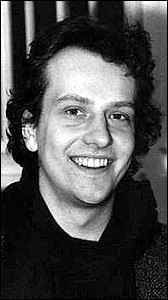about the production
The play consists of the interior monologues, commentaries and confessions, which complement one another surprisingly smartly, sometimes meeting in various situations. The director uses both realism and stylisation, what is not an easy task for the actors. Thanks to the monologues, the Arabian Night creates large space for the performance of the actors; it is a challenge and school for all the performers. The given means of expression are new for the Slovak National Theatre; they offer a different view of the actors in an “established” theatre. It is a fresh, playful and relaxed view!
Tina Vargenová, Národná obroda
Cold stylised acting of exact movements contributes to the perfect polyphony of the performance. The characters speak not only about what they think, but also what they do and in what situation they are. They play. Often in an almost sterile way, to create a tragicomic illusion of hopelessness. The reality and fantasy are equal to such extent that not to respect any conventional drama rules has become the only solution. The director Čičvák and the dramaturgist Martin Kubran moved the repertory of the National Theatre quite a bit further.
Mária Jenčíková, Pravda
Almost without any dialogical sequences the characters describe in a factual way what they are doing and what is going on around them. Things that happen go obviously beyond the expected common way of their uninteresting lives or even beyond the real world. Thanks to the consistently followed principle of clear specification of what is being observed, the description of the situation of a man in a stuck elevator as well as the mishaps of a man who is suddenly locked in a bottle of cognac, are equally objective and depicted in detail. The monologues or streams of observing consciousness intermingle, interrupt, or coincide, what makes a special controversial dynamic. This dynamic builds the characteristics of this strange drama text: the time is at some moments getting slower, more complex, but at the same time, the play pulsates in a constantly accelerating pace of events. Each of the characters is helpless in the face of the events, completely isolated in his/her observations. This helplessness is like a nightmare – even worse than that, because there is nowhere to wake up. As the author says, a man in a bottle of cognac will wake up again just knee-deep in cognac.
Čičvák‘s staging emphasises the inner pulsation and rhythm of the text. On the background of the simple stage design by Tom Ciller, inspired by Escher‘s staircase with some witty surprises, the director builds a form which resembles a piece of music – rather than a harmonic vocal quintet this is some dodecaphonic polyphony, with each voice having its own melodic line and harmony is just a passing coincidence. This rhythmically exactly composed theatrical form works thanks to the qualities of the actors and their admirable performance.
Zora Jaurová, Domino fórum
creators
directed by Martin Čičvák
translation and dramaturgy: Martin Kubran
stage design: Tom Ciller
costume design: Marija Havran
music: Peter Mankovecký
characters and cast:
Fatima Mansurová: Zuzana Fialová, Franciska Dehkeová: Diana Mórová, Hans Lomeier: František Kovár, Kalil: Jozef Vajda, Peter Karpati: Robert Roth
director

Martin Čičvák (1975)
The Slovak director, he is mostly working at Czech theatre stages. After graduating in theatre directing from the Janáček Academy of Performing Arts in Brno, he worked as a director in Mahen Drama Ensemble of the National Theatre in Brno (for the staging of Bernhard’s Immanuel Kant he was awarded Radok Award as the talent of the year). He simultaneously works as a director in the Činoherný klub (Drama Ensemble) in Prague (Büchner: Woyzeck, Suchovo-Kobylin: trilogy Trial, Molière: Le Misanthrope, Pushkin: Onegin, Fosse: Name/Night Is Singing Its Songs). Martin Čičvák works regularly also in the J. K. Tyl Theatre – Opera in Pilsen and in the Polárka Theatre for children and youth in Brno (Divadelná Nitra 2003). In the National Theatre in Prague he directed A Good Man from Sezuan by B. Brecht. He has written a few plays. His play The House Where They Do It Well was successfully staged in Brno, Košice, Budapest, Novi Sad and Norwich (directed by A. Cooper), and in the Grace Theater in London (directed by the author, awarded the Critic’s Choice Award; the staging from Košice was presented at Divadelná Nitra ‘97). For the staging of Maids by J. Genet at Dartington College of Arts he was awarded the Critic’s Choice Award at the theatre festival in Edinburgh.
He works as a university teacher at the JAMU in Brno. The production of Schimmelpfennig’s Arabian Night is the first cooperation with the Drama Ensemble of Slovak National Theatre
